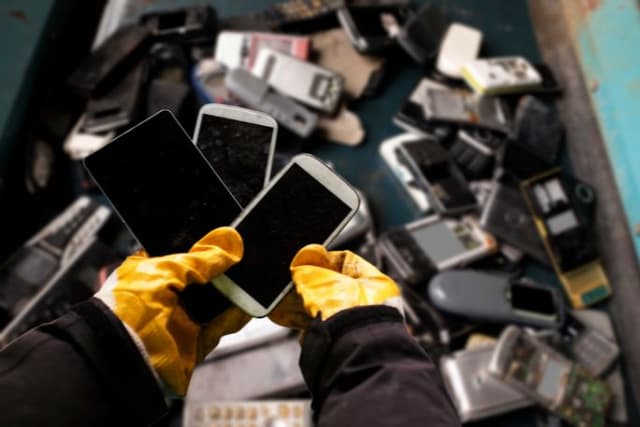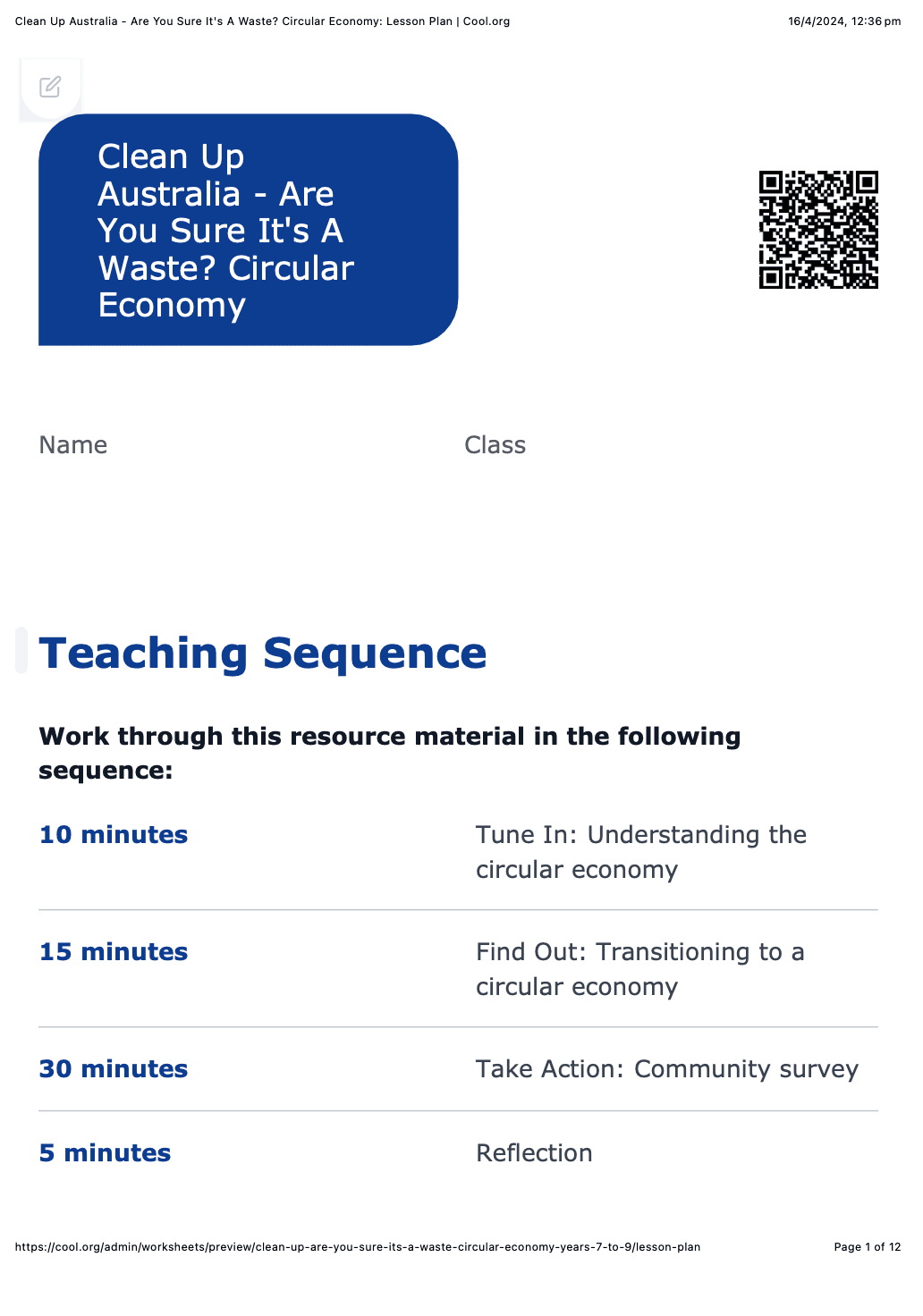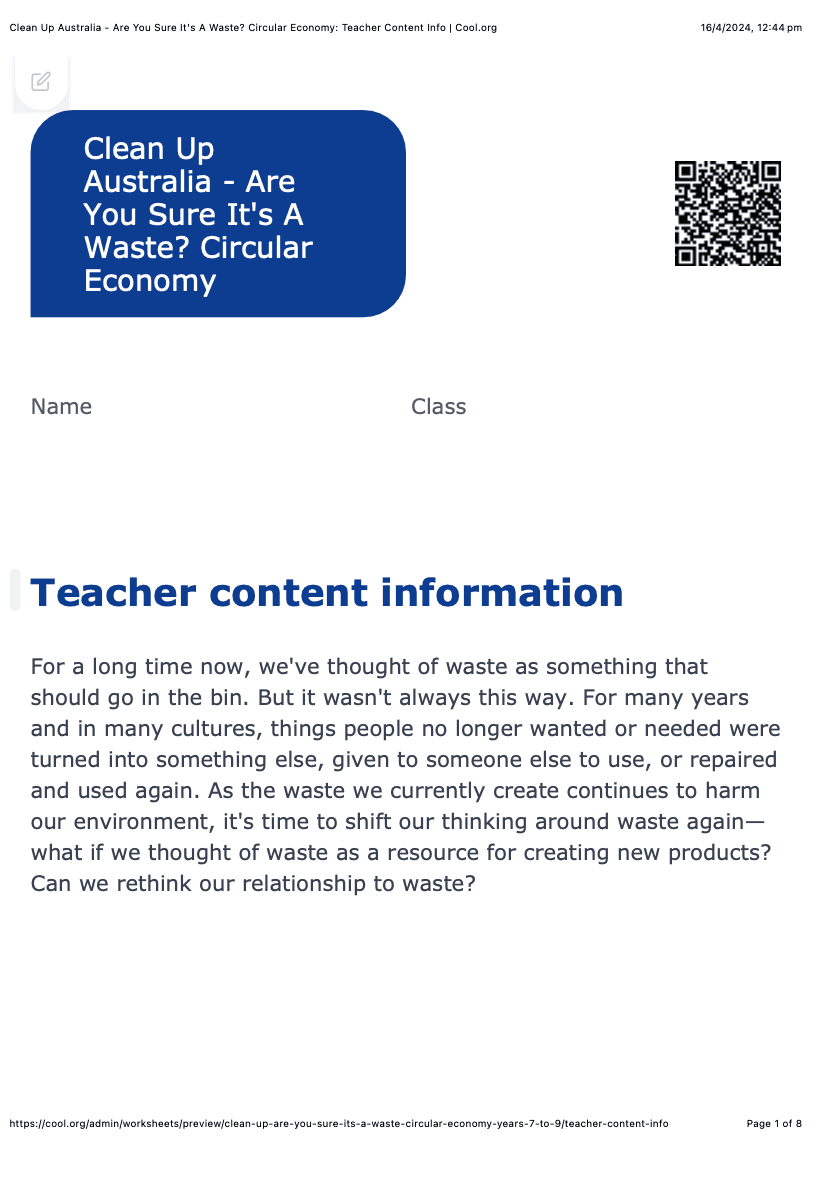
Clean Up Australia - Are You Sure It's A Waste? Circular Economy
Lesson9 of 18 in this unit
SecondaryYear 7 - 10Humanities and Social SciencesBusiness and EconomicsEnvironmentalRecyclingSocialSocial Action
Summary
Lesson Guides and Printables
Lesson Plan

Student Worksheet

Teacher Content Info
